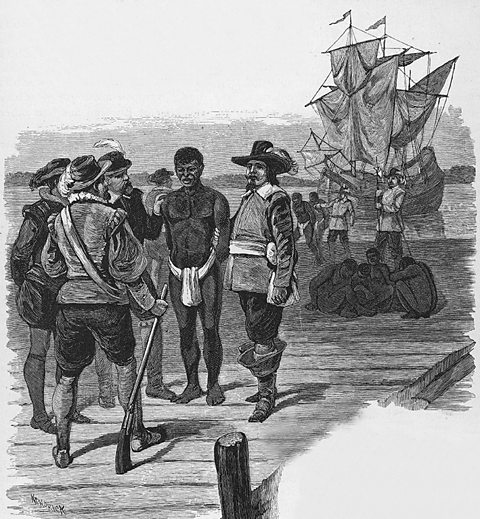Consequences of the slave trade

The slave trade was huge â British ships transported 2.6 million enslaved people. It has been estimated overall, about 12 million African people were captured to be taken to the Americas in slavery.
The majority of enslaved West African people were taken to South America. More than 55 per cent of enslaved African people were taken to Brazil and Spanish South America. Brazil has the second largest black population in the world outside of Nigeria.
Around 35 per cent of enslaved people were taken to the West Indies; less than five per cent were taken to North America. The death rate of enslaved African people was horrific.
- Unknown millions died in Africa before they even made it to the ships.
- It has been estimated that perhaps a fifth of enslaved African people died on the Middle Passage across the Atlantic.
- In the Americas, the death rate amongst enslaved people was also very high. Some historians suggest that the death rate in the 'seasoning camps' was up to 50%.
The enslaved African people took with them their agricultural knowledge, skilled craftsmanship, religion, traditions, cooking, clothes, music and dance.
For example, enslaved West African people brought their own varieties of rice and cultivation techniques to parts of the southern United States. Their expertise in growing rice in the hot and swampy conditions led to rice being one of the biggest cash cropCrops which are sold for profit. in the entire country.
Musical instruments such as the banjo, language such as Haitian Creole, and dances such as the Brazilian Samba and Capoeira were also imported into these new territories and influenced the local cultures there.
Legacies of slavery
Some historians think that white supremacist racism grew in the United States and Europe as a direct result of slavery.
To counter the abolitionists, defenders of the slave trade justified slavery by arguing that people from sub-Saharan Africa were uncivilised compared to white, Western populations. These same arguments were later used in an attempt to justify white supremacy.
The slave trade had a devastating effect on Africa that lasted long after abolition. Aside from the loss of millions of young African people, the slave trade worsened existing conflicts between African nations. Guns and modern weapons â used to trade for enslaved people â made wars more common and far more deadly.
The result was that much of Africa was left underdeveloped and falling behind European counterparts. Some historians have expressed the opinion that the damage done by the slave trade paved the way for the colonisation of Africa by European nations in the 19th century.
The African historian Joseph Inikori (1987) suggested that the slave trade allowed the Industrial Revolution to happen. He believes that British industry benefited by supplying the factory-made goods in exchange for enslaved African people and that profits made in the slave trade provided money for investment in British industry.
After Britain abolished the slave trade in 1807, the 'West Africa Squadron' of the Royal Navy patrolled the Atlantic Ocean trying to stop the slave trade. The British also signed anti-slavery treaties with many African rulers.